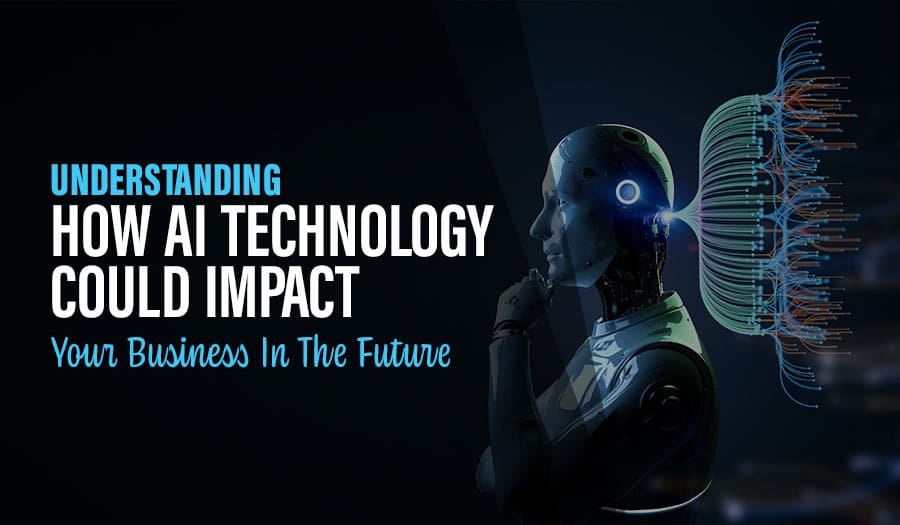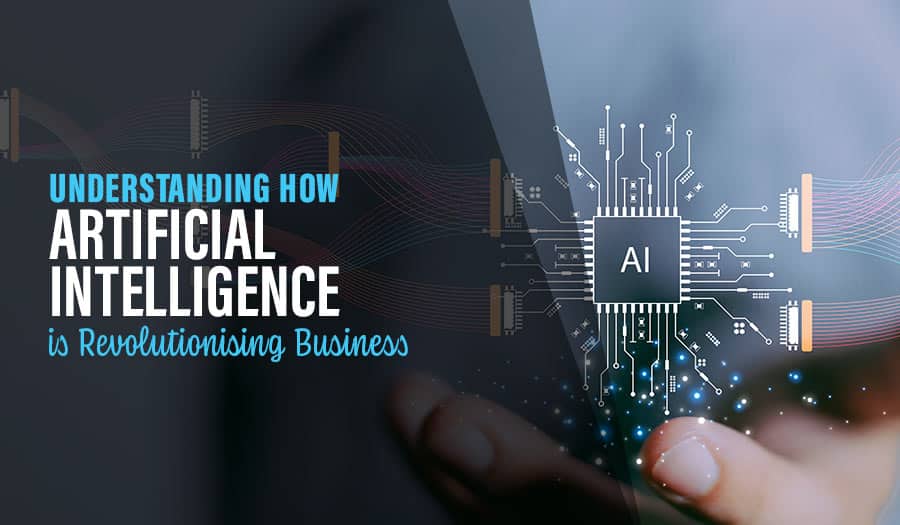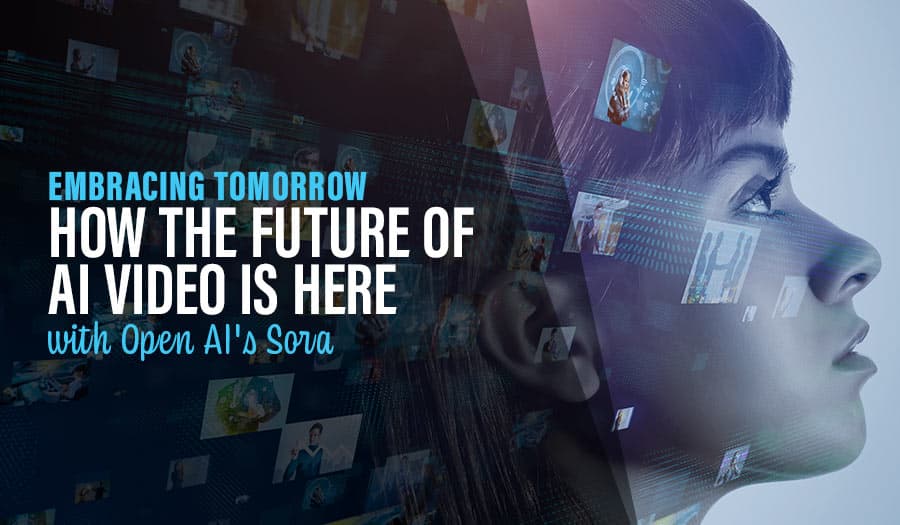Artificial Intelligence (AI) technology is already having a major impact on businesses and industries worldwide. AI provides greater access to data, enables companies to analyze customer behaviour more efficiently, and drastically reduces manual labour costs. Let’s explore How AI Technology Could Impact Your Business In The Future.
The potential of these capabilities is limitless – but what will AI mean for your business in the future? In this blog post, we’ll discuss how current advances in AI are transforming businesses and explore some of the possibilities associated with adapting AI technology within your own operations. Learn more about how leveraging AI can help you get ahead!
What is AI technology?
Artificial Intelligence, or AI, is an intriguing concept that has captured the imagination of many in recent years. The technology involves teaching machines to do things that typically require human intelligence, such as language comprehension, problem-solving, and decision-making. While AIs have been around for a few decades, recent advancements in machine learning and big data have made AI more advanced and useful than ever before.
Understanding AI is crucial for businesses as it can help them automate tasks, increase efficiency, and gain insights into customer behaviour. Additionally, by exploiting AI technology, businesses can differentiate themselves from their competitors and ultimately grow their bottom line. Unsurprisingly, AI is becoming an increasingly essential element in the technology toolkit of businesses worldwide!
A quick history of AI
The history of AI dates back to the 1950s when researchers began developing computer programs that could perform tasks that previously required human intelligence. One of the earliest breakthroughs was the development of the “perceptron” by Frank Rosenblatt in 1958, which was a type of neural network capable of learning simple tasks.
In the 1960s, the first expert systems were developed, computer programs designed to mimic the decision-making abilities of a human expert in a particular field. However, progress in AI research slowed in the 1970s due to funding cuts and scepticism about the field’s potential.
In the 1980s and 1990s, AI research began to pick up again, fueled by advances in computing power and new techniques, such as machine learning and genetic algorithms. This led to natural language processing, computer vision, and robotics breakthroughs.
In the 21st century, AI has become increasingly ubiquitous, with applications in fields ranging from healthcare and finance to transportation and entertainment. Recent advances in deep learning, reinforcement learning, and other techniques have enabled AI systems to achieve human-like performance on many tasks, leading to excitement and concern about the potential impact of AI on society.
Types of AI technology
There are several types of AI technologies, including:
- Machine Learning (ML): This type of AI technology enables machines to learn from data and make predictions or decisions based on that data.
- Natural Language Processing (NLP): This type of AI technology allows computers to understand, interpret, and generate human language.
- Robotics: This involves using machines or robots that can perform tasks that would typically require human intelligence.
- Expert Systems: These are computer programs that can mimic the decision-making abilities of a human expert in a particular field.
- Neural Networks: These are a type of machine learning algorithm that is modelled after the structure and function of the human brain.
- Computer Vision: This type of AI technology allows machines to interpret and understand visual data, such as images or videos.
- Speech Recognition: This involves the ability of machines to recognize and interpret human speech.
- Autonomous Vehicles: These self-driving vehicles use AI technology to navigate and make decisions on the road.
- Predictive Analytics: This type of AI technology uses data mining, machine learning, and other techniques to analyze data and make predictions about future events.
How AI Technology Could Impact Your Business In The Future
1. How AI technology can help automate processes and increase efficiency in the workplace
Artificial intelligence (AI) technology is revolutionizing the way businesses operate. By using advanced algorithms and machine learning, AI can automate various processes and tasks that previously required human intervention. This technology has the potential to streamline operations, reduce costs and increase efficiency in the workplace.
For instance, AI can automatically categorize and organize data, analyze customer feedback, and perform routine tasks like scheduling appointments or answering queries. As more businesses adopt AI technology, the potential benefits continue to grow, making it an increasingly valuable tool for any organization looking to optimize its operations.
AI automation examples in the workplace
AI can automate various processes in the workplace. Some examples are:
- Customer Service: AI chatbots can handle routine customer inquiries, freeing up customer service representatives to handle more complex issues.
- Data Entry: AI can automate data entry tasks, such as extracting information from documents or forms and entering it into a database or spreadsheet.
- Recruitment: AI can automate various tasks in the recruitment process, such as sorting resumes, scheduling interviews, and screening candidates.
- Inventory Management: AI can predict product demand and automatically reorder items when inventory levels fall below a certain threshold.
- Quality Control: AI can automatically detect product defects or anomalies, reducing the need for human inspection.
- Financial Analysis: AI can analyze financial data and provide insights into trends or anomalies, allowing businesses to make more informed decisions.
- Email Management: AI can automatically sort and prioritize emails, flagging urgent messages for immediate attention and filing less important emails for later review.
- Social Media Management: AI can monitor social media channels, automatically responding to customer inquiries or comments and flagging potential issues for human review.
- Document Processing: AI can automatically extract information from documents, such as invoices or receipts, and enter it into a database or accounting system.
- Personalized Marketing: AI can analyze customer data and provide personalized product recommendations or marketing messages based on their preferences and behaviour.
2. Potential advantages of AI technology for customer service and marketing
As technology advances, AI has become an increasingly popular tool for businesses to improve customer service and marketing. AI can offer a range of benefits, including 24/7 availability, faster response times, and the ability to personalize interactions based on customer data. One key advantage of AI in customer service is the ability to handle repetitive and mundane tasks, freeing up human operators to focus on more complex issues.
Additionally, AI can quickly analyze customer data to identify patterns and trends, allowing businesses to make data-driven decisions and improve their marketing strategies. AI can enhance the customer experience by providing efficient and personalized service, ultimately increasing customer satisfaction and retention.
Top AI solutions for customer service and marketing
- Chatbots: AI-powered chatbots can be used to provide customer service support and answer common inquiries 24/7, freeing up human agents to handle more complex issues. Chatbots can also be used to collect customer feedback and provide personalized recommendations.
- Voice Assistants: Voice assistants like Amazon Alexa and Google Assistant can be used to provide customers with information about products and services, answer inquiries, and assist with placing orders or making appointments.
- Personalized Marketing: AI-powered marketing platforms can be used to analyze customer data and behavior, enabling businesses to deliver personalized messaging and product recommendations to individual customers.
- Sentiment Analysis: AI-powered sentiment analysis tools can be used to monitor social media and other channels for customer feedback, allowing businesses to quickly identify and respond to issues or concerns.
- Predictive Analytics: AI-powered predictive analytics tools can be used to analyze customer data and behavior, enabling businesses to make informed decisions about marketing strategies and product development.
- Image and Video Recognition: AI-powered image and video recognition tools can be used to analyze visual content, allowing businesses to monitor brand mentions and track the effectiveness of marketing campaigns.
- Recommendation Engines: AI-powered recommendation engines can be used to provide personalized product recommendations to customers based on their previous purchases and browsing history.
- Email Marketing: AI-powered email marketing platforms can be used to segment customers based on their behavior and interests, enabling businesses to deliver targeted messaging and promotions to specific segments.
3. How AI technology could revolutionize data analytics, providing business owners with more insights into their customers
Artificial Intelligence (AI) technology is changing the face of data analytics. By analyzing vast amounts of data, AI algorithms can detect patterns and trends that would be impossible for humans to identify. This technology revolutionises how businesses interact with customers, providing insights that can streamline operations, improve customer experiences, and drive sales.
AI technology has the potential to deliver accurate and personalized recommendations and predictions, enabling businesses to respond quickly to market changes and customer needs. With AI-powered data analytics, businesses can better understand their customers, making it easier to target their marketing efforts and identify new growth opportunities. The future of data analytics is exciting, and AI is at the forefront of this transformation.
4. Potential security risks that come with using AI technology for businesses
As businesses continue to embrace the numerous benefits of artificial intelligence (AI), it’s important to acknowledge the potential security risks that come with this technology. One of the main risks is that AI systems can be vulnerable to cyber attacks, which can expose sensitive company data to unauthorized individuals. Additionally, AI algorithms can potentially be manipulated or redirected, leading to unexpected outcomes or data breaches.
This is why businesses must implement robust security measures when using AI technology, such as encryption and authentication protocols, as well as regular security audits and employee training. By addressing these security concerns, businesses can confidently harness AI’s full potential while securing their valuable data assets.
Examples of potential risks for business
While AI has the potential to bring many benefits to businesses, it also comes with some potential risks. Some examples of risks that businesses should be aware of include:
- Bias: AI systems are only as good as the data they are trained on, and if that data is biased, it can result in biased decisions or outcomes. This can lead to discrimination and harm to individuals or groups.
- Security Vulnerabilities: AI systems can be vulnerable to cyber attacks, which can compromise sensitive data or cause damage to the system. This can result in financial losses, reputational damage, or legal liabilities.
- Automation Disruption: While AI can automate many tasks, it can also lead to job displacement, which can have negative social and economic impacts.
- Privacy Concerns: AI systems can collect and process vast amounts of data, which can raise privacy concerns if that data is not handled properly. This can result in legal or regulatory penalties, as well as damage to a company’s reputation.
- Lack of Transparency: Some AI systems can be difficult to understand or interpret, which can make it challenging to identify errors or biases in their decision-making processes.
- Legal and Ethical Risks: AI systems can raise legal and ethical questions, such as who is responsible for the actions of an autonomous system, or what happens when an AI system causes harm or damage.
- Dependency Risk: Over-reliance on AI systems can lead to a loss of human skills and intuition, which can make it difficult to address unexpected situations or problems.
5. Consider ways to ensure data protection when utilizing AI technology in your business
In today’s digital era, data protection has become crucial for businesses that rely on the use of AI technology. While these technologies can increase business efficiency and productivity, they also create a vulnerability to data breaches that could compromise sensitive information. To ensure that your business data is safe, you need to employ measures such as encryption, access control, and risk identification. Additionally, conduct regular security assessments and educate your employees on cybersecurity best practices. By prioritizing data protection with AI technology, you safeguard your business and build trust with your customers. Stay ahead of potential threats and keep your business secure.
To conclude, AI technology is no doubt an incredible game-changer for businesses in this digital age. Integrating AI into operations has the potential to automate processes, increase efficiency, and bring better customer service experiences to life. Furthermore, it could revolutionize data analytics, offering business owners a deeper dive into their target market’s preferences and behaviours. It is important to keep in mind the security risks that come with using AI technology for businesses and make an effort to establish measures of protection throughout the entire operation process. Although there are many challenges that come with implementing AI technology, it can be a great asset if it is used wisely by business owners. It is clear that learning how to properly exploit its possibilities while being mindful of data security issues can be very beneficial in driving success in any business setting.
Top ways to protect data when using AI Systems for business
When using AI technology for business, it’s important to implement measures to protect sensitive data from potential breaches or unauthorized access. Here are some top ways to protect data when using AI technology for business:
- Data Encryption: Use encryption to protect sensitive data both in transit and at rest. This can be achieved by implementing secure protocols such as SSL/TLS for network connections and using encryption tools like PGP and AES for data storage.
- Access Controls: Implement access controls and user permissions to ensure that only authorized individuals have access to sensitive data. This includes implementing strong password policies, multi-factor authentication, and role-based access controls.
- Data Minimization: Collect and store only the essential data for business operations. This can reduce the risk of data breaches and limit the potential impact of a breach.
- Regular Data Backups: Regularly back up all data to ensure that it can be recovered in the event of a breach or other disaster.
- Security Testing: Regularly perform security testing and vulnerability assessments to identify and address potential weaknesses in the system.
- Privacy Policies: Develop and communicate clear privacy policies and guidelines to employees and stakeholders to ensure that all data is handled appropriately and in accordance with applicable regulations.
- Ongoing Monitoring: Monitor AI systems and data access logs to detect and respond to potential security breaches or unauthorized access.
- Regular Training and Education: Provide regular training and education to employees and stakeholders to ensure that they know best data security and privacy practices.
By implementing these measures, businesses can help protect sensitive data when using AI technology and reduce the risk of data breaches or other security incidents.
6. Top business occupations predicted to be replaced by Artificial Intelligence technology
AI technology is expected to impact a wide range of jobs and industries in the coming years, with some occupations predicted to be more vulnerable to automation than others. Here are some of the top business occupations predicted to be replaced by AI technology:
- Administrative Support Staff: With the increasing automation of routine administrative tasks, such as data entry, scheduling, and document management, administrative support roles are particularly vulnerable to AI-driven automation.
- Customer Service Representatives: AI-powered chatbots and virtual assistants are increasingly being used to handle routine customer inquiries and support requests, potentially reducing the need for human customer service representatives.
- Accountants and Bookkeepers: AI-powered accounting software can automate many accounting and bookkeeping tasks, such as data entry, reconciliation, and reporting, potentially reducing the need for human accountants and bookkeepers.
- Financial Analysts: AI algorithms can analyze large amounts of financial data and provide insights and recommendations, potentially reducing the need for human financial analysts.
- Sales Representatives: With the increasing use of AI-powered predictive analytics and marketing automation, sales representatives may be replaced by automated sales systems that can analyze customer data, predict buying patterns, and deliver targeted sales pitches.
- Insurance Underwriters: AI-powered underwriting software can analyze vast amounts of data to assess risk and make policy decisions, potentially reducing the need for human insurance underwriters.
It’s worth noting that while these roles are predicted to be impacted by AI technology, it’s unlikely that they will be completely replaced by machines. Rather, AI is likely to augment and transform these roles, requiring workers to develop new skills and adapt to new ways of working.
7. How AI technology could impact your business
AI technology has the potential to impact businesses in a variety of ways, both positively and negatively. Here are some potential impacts of AI technology on businesses:
- Increased Efficiency: AI technology can automate many routine tasks and processes, freeing up employees to focus on more complex tasks and projects. This can result in increased efficiency and productivity for businesses.
- Improved Customer Experience: AI-powered chatbots and virtual assistants can provide customers with 24/7 support and personalized service, improving the overall customer experience.
- Better Decision-Making: AI algorithms can analyze vast amounts of data and provide insights and recommendations, helping businesses make more informed and data-driven decisions.
- Cost Savings: By automating routine tasks and processes, businesses can potentially reduce labor costs and increase operational efficiency, resulting in cost savings.
- Increased Competition: As more businesses adopt AI technology, it could become a competitive advantage, making it more difficult for businesses that don’t have access to AI technology to compete.
- Job Displacement: AI technology could potentially displace jobs that involve routine tasks and processes, such as administrative and support roles. This could lead to job loss and require workers to develop new skills and adapt to new ways of working.
- Data Privacy and Security: AI technology relies on large amounts of data, and businesses must ensure that this data is collected, stored, and used in compliance with data privacy and security regulations.
Overall, AI technology has the potential to transform businesses and industries in significant ways, but it’s important for businesses to carefully consider the potential impacts and plan accordingly. This may involve investing in AI technology, developing new skills and competencies, and implementing appropriate data privacy and security measures.
Machine Learning vs Natural Language Processing
Machine learning and natural language processing (NLP) are two closely related but distinct fields of AI. Machine learning is a broad category of algorithms and techniques that allow computers to learn from data and make predictions or decisions without being explicitly programmed. In contrast, NLP is a subset of machine learning that focuses specifically on the processing and analysis of human language.
Here are some of the key differences between machine learning and NLP:
- Focus: Machine learning is focused on building models that can make predictions or decisions based on data, while NLP is focused on building models that can understand and interpret human language.
- Input Data: Machine learning algorithms can be trained on any type of data, including images, numerical data, and text. In contrast, NLP algorithms are specifically designed to process and analyze human language.
- Techniques: Machine learning techniques include supervised and unsupervised learning, reinforcement learning, and deep learning. NLP techniques include parsing, part-of-speech tagging, named entity recognition, and sentiment analysis.
- Applications: Machine learning is used in a wide range of applications, including image and speech recognition, fraud detection, and recommendation systems. NLP is used in applications such as language translation, chatbots, and voice assistants.
- Complexity: NLP is generally considered to be a more complex field than machine learning, as it requires algorithms to understand and interpret human language, which can be ambiguous and context-dependent.
Overall, while machine learning and NLP are closely related fields, they have distinct focuses and techniques. Both fields have many practical applications and are expected to continue to grow in importance in the coming years.
Take your business to the next level with a Pixel Fish Website.
Check out some of our latest Website Design projects.
View some case studies of our website design work:
Editor Group
Scooter Central
PMC Property
Waters Wine
Sydney Dive Charters
Further Information
Pixel Fish Hosting, Support & Maintenance
AI Technology is Taking Over Business. How Will it Affect Yours?
7 Top Ways E-Commerce is Changing for Business
IT and Technology Website Design
How to Successfully Create a Business Social Media Strategy
$16 Billion Opportunity: Why your business must embrace online selling
How to Create a Landing Page for Your Small Business



